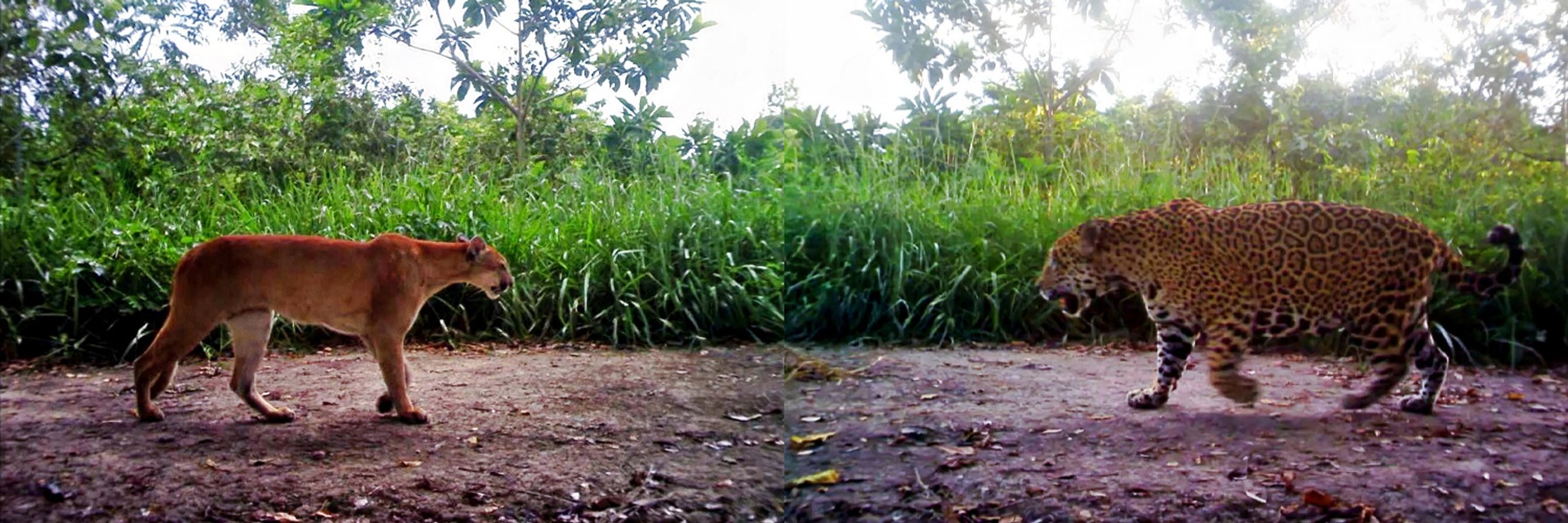
Nick Deere
@nicolasjdeere.bsky.social
Conservation Biologist and postdoc at the Tropical Defaunation Hub @dice-kent.bsky.social. Tropical forests | Southeast Asia | Mammals | Environmental change | Camera traps | Quantitative ecology | Ailurophile | Muay thai | Guitarist on the side
Reposted by Nick Deere
Fascinating new research:
2+ decades later, bird communities in northern New Mexico are more biodiverse in patches that experienced low-severity fire when compared to nearby high-severity patches
2+ decades later, bird communities in northern New Mexico are more biodiverse in patches that experienced low-severity fire when compared to nearby high-severity patches

Bird communities follow alternate recovery trajectories two decades after wildfire
Wildfires are altering forested landscapes across western North America. These wildfires are increasingly burning with high severity across large area…
www.sciencedirect.com
November 4, 2025 at 2:40 PM
Fascinating new research:
2+ decades later, bird communities in northern New Mexico are more biodiverse in patches that experienced low-severity fire when compared to nearby high-severity patches
2+ decades later, bird communities in northern New Mexico are more biodiverse in patches that experienced low-severity fire when compared to nearby high-severity patches
Reposted by Nick Deere
🎯 5 key strategies for transformative change: From conserving vital places to shifting values.
Together these create pathways to just and sustainable futures.
IPBES #TransformativeChange Assessment: https://www.ipbes.net/transformative-change-assessment
Together these create pathways to just and sustainable futures.
IPBES #TransformativeChange Assessment: https://www.ipbes.net/transformative-change-assessment

October 16, 2025 at 2:35 PM
🎯 5 key strategies for transformative change: From conserving vital places to shifting values.
Together these create pathways to just and sustainable futures.
IPBES #TransformativeChange Assessment: https://www.ipbes.net/transformative-change-assessment
Together these create pathways to just and sustainable futures.
IPBES #TransformativeChange Assessment: https://www.ipbes.net/transformative-change-assessment
Reposted by Nick Deere
🦣 New paper: Megafauna with large size & flat-footedness + less related to tropical African/Asian fauna were more likely to go extinct in recent prehistory; consistent w direct hunting including pre-sapiens human filtering👣👉 doi.org/10.1111/geb....
#Megafauna #Extinction #TraitEcology #Palaeoecology
#Megafauna #Extinction #TraitEcology #Palaeoecology
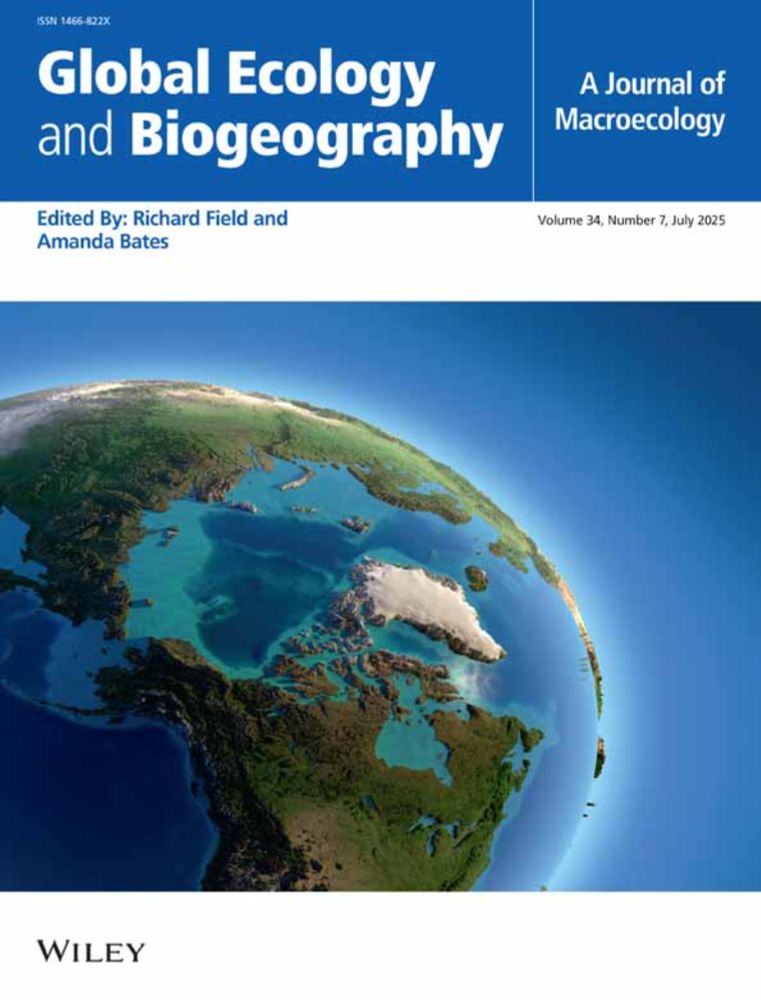
Phylogenetic Evidence Supports the Effect of Traits on Late‐Quaternary Megafauna Extinction in the Context of Human Activity
Aim The late-Quaternary extinctions, which affected primarily large mammals, are strongly connected to the migration of modern humans out of sub-Saharan Africa and tropical Asia (the Palaeotropics),...
doi.org
June 30, 2025 at 5:22 AM
🦣 New paper: Megafauna with large size & flat-footedness + less related to tropical African/Asian fauna were more likely to go extinct in recent prehistory; consistent w direct hunting including pre-sapiens human filtering👣👉 doi.org/10.1111/geb....
#Megafauna #Extinction #TraitEcology #Palaeoecology
#Megafauna #Extinction #TraitEcology #Palaeoecology
Reposted by Nick Deere
🤖 If you use LinkedIn, please be aware that they automatically use your profile to train their GenAI. To turn off, go to Settings > Data Privacy > Data for Gen AI improvements.

October 11, 2025 at 11:04 PM
🤖 If you use LinkedIn, please be aware that they automatically use your profile to train their GenAI. To turn off, go to Settings > Data Privacy > Data for Gen AI improvements.
Reposted by Nick Deere
New paper out today in
@natecoevo.nature.com on biodiversity & human wellbeing in UK forests, both seasonally and along a gradient of socioeconomic deprivation
Funded by @erc.europa.eu and Woodland Trust 🌳, with lovely @dice-kent.bsky.social team
www.nature.com/articles/s41...
@natecoevo.nature.com on biodiversity & human wellbeing in UK forests, both seasonally and along a gradient of socioeconomic deprivation
Funded by @erc.europa.eu and Woodland Trust 🌳, with lovely @dice-kent.bsky.social team
www.nature.com/articles/s41...
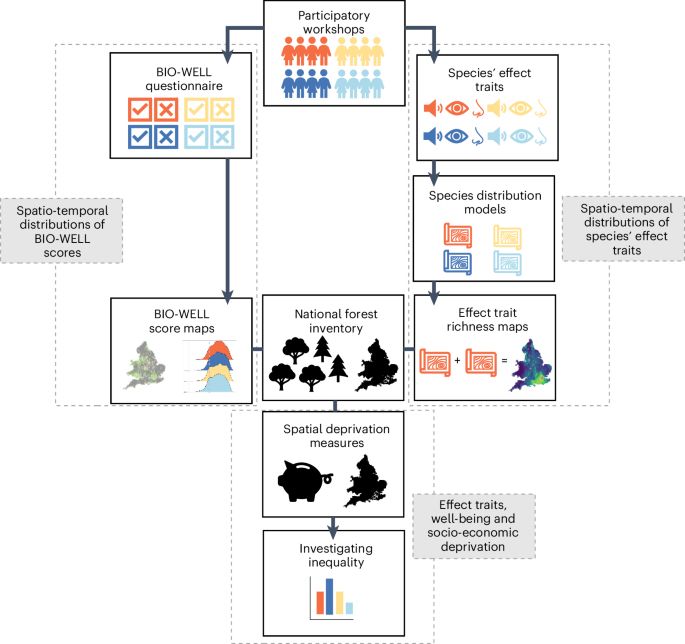
Spatio-temporal variability in forest biodiversity associated with human well-being across socio-economic deprivation gradients - Nature Ecology & Evolution
Applying a combined social science and trait-based ecology approach, the authors identify ecological traits in forests eliciting positive or negative well-being among human participants in England and...
www.nature.com
June 25, 2025 at 12:18 PM
New paper out today in
@natecoevo.nature.com on biodiversity & human wellbeing in UK forests, both seasonally and along a gradient of socioeconomic deprivation
Funded by @erc.europa.eu and Woodland Trust 🌳, with lovely @dice-kent.bsky.social team
www.nature.com/articles/s41...
@natecoevo.nature.com on biodiversity & human wellbeing in UK forests, both seasonally and along a gradient of socioeconomic deprivation
Funded by @erc.europa.eu and Woodland Trust 🌳, with lovely @dice-kent.bsky.social team
www.nature.com/articles/s41...
Reposted by Nick Deere
Excited to share that the second paper of my PhD is out in @currentbiology.bsky.social 🍈🦜🍒🐒🍊🐿️
We show that the functional diversity of seed-dispersal interactions in tropical forests takes circa 20 years to recover after deforestation.
You can read it here: www.cell.com/current-biol...
We show that the functional diversity of seed-dispersal interactions in tropical forests takes circa 20 years to recover after deforestation.
You can read it here: www.cell.com/current-biol...

Delayed recovery of seed-dispersal interactions after deforestation
Landim et al. show that seed-dispersal interactions require about two decades to functionally
recover in tropical forests in Ecuador, but the recovery time of seed-dispersal functions
is delayed in pa...
www.cell.com
October 2, 2025 at 1:19 PM
Excited to share that the second paper of my PhD is out in @currentbiology.bsky.social 🍈🦜🍒🐒🍊🐿️
We show that the functional diversity of seed-dispersal interactions in tropical forests takes circa 20 years to recover after deforestation.
You can read it here: www.cell.com/current-biol...
We show that the functional diversity of seed-dispersal interactions in tropical forests takes circa 20 years to recover after deforestation.
You can read it here: www.cell.com/current-biol...
Reposted by Nick Deere
European amphibian hotspots in the hot pot. Published in Earth’s Future
doi.org/10.1029/2025...
Central & Eastern Europe sites: intense temperature increments & expanded droughts
Mediterranean sites: Increasing floods
Mediterranean coast, France & Italy vulnerable: low fecundity+high threat
doi.org/10.1029/2025...
Central & Eastern Europe sites: intense temperature increments & expanded droughts
Mediterranean sites: Increasing floods
Mediterranean coast, France & Italy vulnerable: low fecundity+high threat

Assessing Vulnerability of Relevant Sites for Amphibian Conservation Through Spatiotemporal Analyses of Global Change Factors in Europe
Sites for amphibian conservation in Central and Eastern Europe face intense temperature increments and expanded droughts Sites in the Mediterranean experienced a slower pace of temperature increm...
doi.org
September 24, 2025 at 8:51 AM
European amphibian hotspots in the hot pot. Published in Earth’s Future
doi.org/10.1029/2025...
Central & Eastern Europe sites: intense temperature increments & expanded droughts
Mediterranean sites: Increasing floods
Mediterranean coast, France & Italy vulnerable: low fecundity+high threat
doi.org/10.1029/2025...
Central & Eastern Europe sites: intense temperature increments & expanded droughts
Mediterranean sites: Increasing floods
Mediterranean coast, France & Italy vulnerable: low fecundity+high threat
Reposted by Nick Deere
📖Published📖
Forrest et al. present deepSSF, an approach to fit and predict animal movement data using deep learning 🐃 🌍 🧪 Read the full article here 👇
buff.ly/BWQ3Oni
Forrest et al. present deepSSF, an approach to fit and predict animal movement data using deep learning 🐃 🌍 🧪 Read the full article here 👇
buff.ly/BWQ3Oni

August 22, 2025 at 11:02 AM
📖Published📖
Forrest et al. present deepSSF, an approach to fit and predict animal movement data using deep learning 🐃 🌍 🧪 Read the full article here 👇
buff.ly/BWQ3Oni
Forrest et al. present deepSSF, an approach to fit and predict animal movement data using deep learning 🐃 🌍 🧪 Read the full article here 👇
buff.ly/BWQ3Oni
Reposted by Nick Deere
🔥 Our new research in @science.org shows that people are increasingly exposed to fires globally, driven by overlapping shifts in where #fires occur and where people live.
But changes in exposure vary hugely by region and are shaped by different population dynamics.👇
www.science.org/doi/10.1126/...
But changes in exposure vary hugely by region and are shaped by different population dynamics.👇
www.science.org/doi/10.1126/...

Increasing global human exposure to wildland fires despite declining burned area
Although half of Earth’s population resides in the wildland-urban interface, human exposure to wildland fires remains unquantified. We show that the population directly exposed to wildland fires incre...
www.science.org
August 22, 2025 at 10:18 AM
🔥 Our new research in @science.org shows that people are increasingly exposed to fires globally, driven by overlapping shifts in where #fires occur and where people live.
But changes in exposure vary hugely by region and are shaped by different population dynamics.👇
www.science.org/doi/10.1126/...
But changes in exposure vary hugely by region and are shaped by different population dynamics.👇
www.science.org/doi/10.1126/...
Reposted by Nick Deere
INVITED COMMENTARY
Integrate Remote Sensing Into Ecological Research to Realise Its Potential for Monitoring in the Antarctic
🔗 buff.ly/3a2OFU6
Integrate Remote Sensing Into Ecological Research to Realise Its Potential for Monitoring in the Antarctic
🔗 buff.ly/3a2OFU6
August 20, 2025 at 4:59 PM
INVITED COMMENTARY
Integrate Remote Sensing Into Ecological Research to Realise Its Potential for Monitoring in the Antarctic
🔗 buff.ly/3a2OFU6
Integrate Remote Sensing Into Ecological Research to Realise Its Potential for Monitoring in the Antarctic
🔗 buff.ly/3a2OFU6
Reposted by Nick Deere
1/ Nice article just published summarising our recent paper exploring the distribution, ecology and #conservation of #kerangas #forest in Kalimantan 🌳. Under-appreciated but incredible forests, with important conservation potential and much still to learn! Paper OA and linked 👇
A new study has mapped lowland heath forests (kerangas) in Indonesian Borneo, revealing major changes in their extent and limited formal protection.
The study calls for urgent action to better understand, protect and sustainably manage these rare ecosystems.
The study calls for urgent action to better understand, protect and sustainably manage these rare ecosystems.
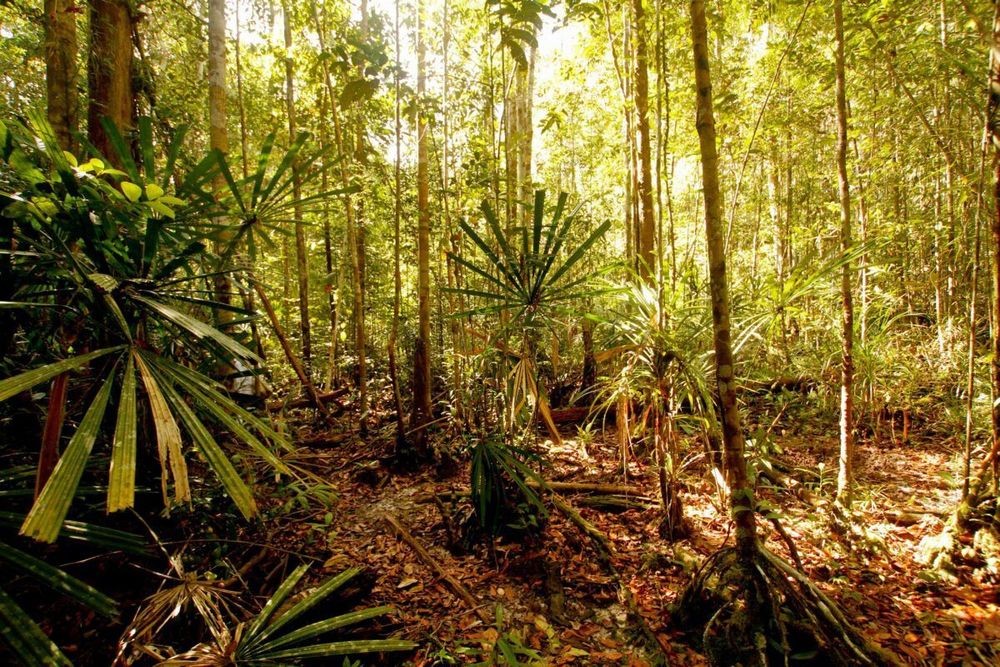
Study maps rare Borneo forests with unique habitats & urgent need for protection
In their latest study, a group of researchers from Indonesia, the U.K., and the U.S. find that heath forests (locally known as kerangas) span 16,586 square kilometers (6,400 square miles) — almost…
news.mongabay.com
August 14, 2025 at 9:13 AM
1/ Nice article just published summarising our recent paper exploring the distribution, ecology and #conservation of #kerangas #forest in Kalimantan 🌳. Under-appreciated but incredible forests, with important conservation potential and much still to learn! Paper OA and linked 👇
Reposted by Nick Deere
Fire in focus: Clarifying metrics & terminology for better ecological insight 🔥🧪
This framework can help researchers & practitioners to
👉select fire metrics for research & management 📊
👉interpret previous studies 💭
👉form a growing body of knowledge 🌏
🔗 doi.org/10.1111/1365...
This framework can help researchers & practitioners to
👉select fire metrics for research & management 📊
👉interpret previous studies 💭
👉form a growing body of knowledge 🌏
🔗 doi.org/10.1111/1365...

doi.org
August 12, 2025 at 1:03 PM
Fire in focus: Clarifying metrics & terminology for better ecological insight 🔥🧪
This framework can help researchers & practitioners to
👉select fire metrics for research & management 📊
👉interpret previous studies 💭
👉form a growing body of knowledge 🌏
🔗 doi.org/10.1111/1365...
This framework can help researchers & practitioners to
👉select fire metrics for research & management 📊
👉interpret previous studies 💭
👉form a growing body of knowledge 🌏
🔗 doi.org/10.1111/1365...
Reposted by Nick Deere
Out today! ‘Quantifying coral reef–ocean interactions is critical for predicting reef futures under climate change’ in @natecoevo.nature.com
#EcologicalOceanography #InterdisciplinaryResearch #CoralReefs #OceanicSubsidies
doi.org/10.1038/s415...
@sosbangor.bsky.social
#EcologicalOceanography #InterdisciplinaryResearch #CoralReefs #OceanicSubsidies
doi.org/10.1038/s415...
@sosbangor.bsky.social

August 11, 2025 at 1:03 PM
Out today! ‘Quantifying coral reef–ocean interactions is critical for predicting reef futures under climate change’ in @natecoevo.nature.com
#EcologicalOceanography #InterdisciplinaryResearch #CoralReefs #OceanicSubsidies
doi.org/10.1038/s415...
@sosbangor.bsky.social
#EcologicalOceanography #InterdisciplinaryResearch #CoralReefs #OceanicSubsidies
doi.org/10.1038/s415...
@sosbangor.bsky.social
Reposted by Nick Deere
Kotz, Amano & Watson show that exposure to heat extremes is associated with declines in bird populations, especially in tropical regions
@tatsuya-amano.bsky.social
@pik-potsdam.bsky.social
www.nature.com/articles/s41...
@tatsuya-amano.bsky.social
@pik-potsdam.bsky.social
www.nature.com/articles/s41...
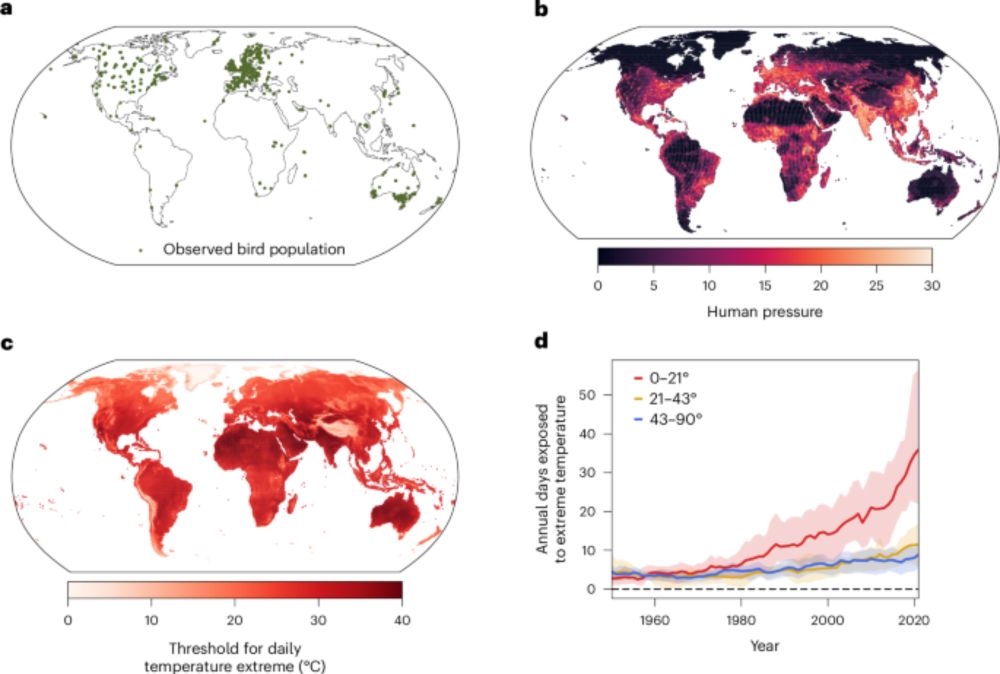
Large reductions in tropical bird abundance attributable to heat extreme intensification - Nature Ecology & Evolution
Climate change poses a growing threat to biodiversity, but disentangling its overall impact from other anthropogenic stressors is challenging. Here the authors use a data-driven climate attribution fr...
www.nature.com
August 11, 2025 at 9:49 PM
Kotz, Amano & Watson show that exposure to heat extremes is associated with declines in bird populations, especially in tropical regions
@tatsuya-amano.bsky.social
@pik-potsdam.bsky.social
www.nature.com/articles/s41...
@tatsuya-amano.bsky.social
@pik-potsdam.bsky.social
www.nature.com/articles/s41...
Reposted by Nick Deere
The authors of a Comment article in Nature explore key challenges that must be addressed by scientists, scholars, engineers and policymakers to ensure that interactions between humans and AI agents — and among agents themselves — remain broadly beneficial. 🧪

We need a new ethics for a world of AI agents
The deployment of capable AI agents raises fresh questions about safety, human–machine relationships and social coordination.
go.nature.com
August 11, 2025 at 10:08 PM
The authors of a Comment article in Nature explore key challenges that must be addressed by scientists, scholars, engineers and policymakers to ensure that interactions between humans and AI agents — and among agents themselves — remain broadly beneficial. 🧪
Reposted by Nick Deere
iNaturalist is shaping the future of biodiversity research. See our recent paper, published in Bioscience. doi.org/10.1093/bios...
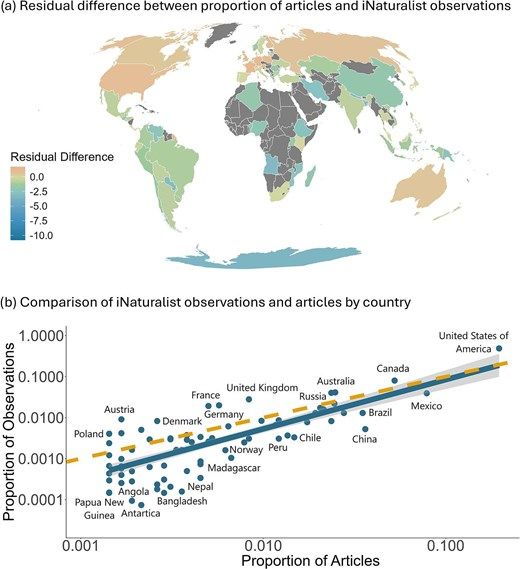
August 7, 2025 at 1:40 AM
iNaturalist is shaping the future of biodiversity research. See our recent paper, published in Bioscience. doi.org/10.1093/bios...
Reposted by Nick Deere
Southeast Asia covers multiple global biodiversity hotspots — but is experiencing a biodiversity crisis.
Our new article in Nature Reviews Biodiversity asks: What’s really driving the losses, and what can we do about it?
👉 rdcu.be/expy6 1/7
Our new article in Nature Reviews Biodiversity asks: What’s really driving the losses, and what can we do about it?
👉 rdcu.be/expy6 1/7

Drivers and solutions to Southeast Asia’s biodiversity crisis
Nature Reviews Biodiversity - The terrestrial ecosystems of Southeast Asia are both globally important reservoirs of biodiversity, and a provider of resources and livelihoods for millions of people...
rdcu.be
August 5, 2025 at 3:48 PM
Southeast Asia covers multiple global biodiversity hotspots — but is experiencing a biodiversity crisis.
Our new article in Nature Reviews Biodiversity asks: What’s really driving the losses, and what can we do about it?
👉 rdcu.be/expy6 1/7
Our new article in Nature Reviews Biodiversity asks: What’s really driving the losses, and what can we do about it?
👉 rdcu.be/expy6 1/7
Reposted by Nick Deere
Conservation has always focused on the most threatened species
But what keeps our planet habitable is functioning ecosystems
Since society refuses to properly fund an ark, and it's an emergency, that needs a rethink
Maybe we need to save the game, not the players
www.pnas.org/doi/10.1073/...
But what keeps our planet habitable is functioning ecosystems
Since society refuses to properly fund an ark, and it's an emergency, that needs a rethink
Maybe we need to save the game, not the players
www.pnas.org/doi/10.1073/...

Biodiversity conservation requires integration of species-centric and process-based strategies | PNAS
Conservation science and policy are geared primarily toward the preservation of species
and habitats, with priority often given to the rarest, most...
www.pnas.org
July 29, 2025 at 8:21 AM
Conservation has always focused on the most threatened species
But what keeps our planet habitable is functioning ecosystems
Since society refuses to properly fund an ark, and it's an emergency, that needs a rethink
Maybe we need to save the game, not the players
www.pnas.org/doi/10.1073/...
But what keeps our planet habitable is functioning ecosystems
Since society refuses to properly fund an ark, and it's an emergency, that needs a rethink
Maybe we need to save the game, not the players
www.pnas.org/doi/10.1073/...
Reposted by Nick Deere
I am excited to share new work led by Bob McCleery and with a wonderful group of co-authors.
Experimental evidence for the massive role that megaherbivores play in savannas...
And it is not just through their effects on vegetation...
Check it out here:
authors.elsevier.com/c/1lVgw_9CgT...
Experimental evidence for the massive role that megaherbivores play in savannas...
And it is not just through their effects on vegetation...
Check it out here:
authors.elsevier.com/c/1lVgw_9CgT...

July 28, 2025 at 9:39 AM
I am excited to share new work led by Bob McCleery and with a wonderful group of co-authors.
Experimental evidence for the massive role that megaherbivores play in savannas...
And it is not just through their effects on vegetation...
Check it out here:
authors.elsevier.com/c/1lVgw_9CgT...
Experimental evidence for the massive role that megaherbivores play in savannas...
And it is not just through their effects on vegetation...
Check it out here:
authors.elsevier.com/c/1lVgw_9CgT...
Reposted by Nick Deere
New online! Addressing disparities in global biodiversity data
Addressing disparities in global biodiversity data
Nature Reviews Biodiversity, Published online: 23 July 2025; doi:10.1038/s44358-025-00072-7Addressing disparities in global biodiversity data
bit.ly
July 23, 2025 at 11:57 AM
New online! Addressing disparities in global biodiversity data
Reposted by Nick Deere
New online! Drivers and solutions to Southeast Asia’s biodiversity crisis

Drivers and solutions to Southeast Asia’s biodiversity crisis
Nature Reviews Biodiversity, Published online: 23 July 2025; doi:10.1038/s44358-025-00064-7The terrestrial ecosystems of Southeast Asia are both globally important reservoirs of biodiversity, and a provider of resources and livelihoods for millions of people across the region. This Review summarizes the threats to biodiversity in Southeast Asia, and the conservation solutions required to ensure successful outcomes for biodiversity and people.
bit.ly
July 23, 2025 at 11:55 AM
New online! Drivers and solutions to Southeast Asia’s biodiversity crisis
Reposted by Nick Deere
Monitoring population extinction risk with community science data 💬🌎
Leveraging 'the power of people' allows estimating local persistence probability as a risk-based population viability, closely aligning estimation from standardized, systematic monitoring 🧪
🔗 doi.org/10.1111/1365...
Leveraging 'the power of people' allows estimating local persistence probability as a risk-based population viability, closely aligning estimation from standardized, systematic monitoring 🧪
🔗 doi.org/10.1111/1365...

July 22, 2025 at 11:41 AM
Monitoring population extinction risk with community science data 💬🌎
Leveraging 'the power of people' allows estimating local persistence probability as a risk-based population viability, closely aligning estimation from standardized, systematic monitoring 🧪
🔗 doi.org/10.1111/1365...
Leveraging 'the power of people' allows estimating local persistence probability as a risk-based population viability, closely aligning estimation from standardized, systematic monitoring 🧪
🔗 doi.org/10.1111/1365...
Reposted by Nick Deere
Ozzy Osbourne, the people’s Prince of Darkness, took heavy metal into the light

Ozzy Osbourne, the people’s Prince of Darkness, took heavy metal into the light
Having escaped a life of drudgery in Birmingham, Ozzy became the rare rock frontman you could relate to – and then, against the odds, a national treasure
www.theguardian.com
July 22, 2025 at 7:21 PM
Ozzy Osbourne, the people’s Prince of Darkness, took heavy metal into the light
Reposted by Nick Deere
Read our latest paper on the application of macroecological theory to better understand human impact on biodiversity, great collaborative work led by @pierregauz.bsky.social
onlinelibrary.wiley.com/doi/10.1111/...
onlinelibrary.wiley.com/doi/10.1111/...
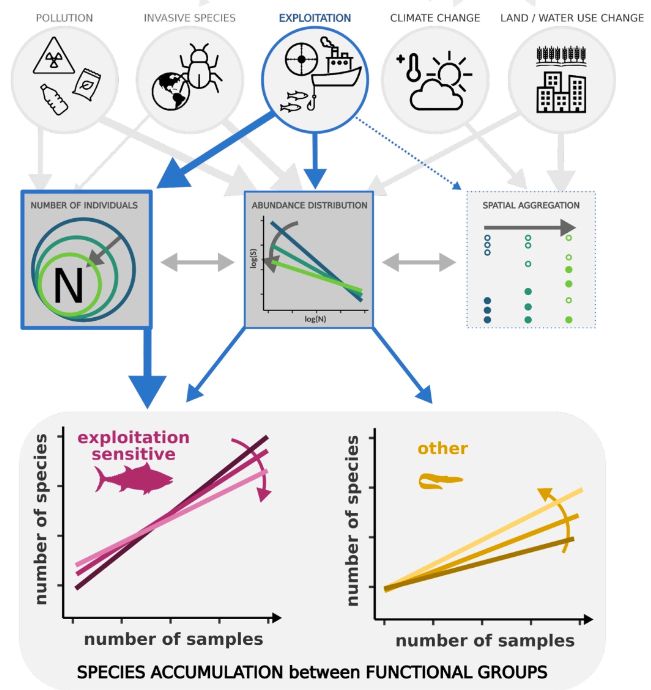
July 21, 2025 at 7:38 AM
Read our latest paper on the application of macroecological theory to better understand human impact on biodiversity, great collaborative work led by @pierregauz.bsky.social
onlinelibrary.wiley.com/doi/10.1111/...
onlinelibrary.wiley.com/doi/10.1111/...
Reposted by Nick Deere
Happy to share our new paper, led by Cornelia Warrer, investigating large carnivore snaring rates & drivers of snare occurrence across Kruger NP!
www.sciencedirect.com/science/arti...
We found that carnivores were highly susceptible to being caught in snares & predicted snaring hotspots in Kruger
www.sciencedirect.com/science/arti...
We found that carnivores were highly susceptible to being caught in snares & predicted snaring hotspots in Kruger


July 15, 2025 at 8:10 AM
Happy to share our new paper, led by Cornelia Warrer, investigating large carnivore snaring rates & drivers of snare occurrence across Kruger NP!
www.sciencedirect.com/science/arti...
We found that carnivores were highly susceptible to being caught in snares & predicted snaring hotspots in Kruger
www.sciencedirect.com/science/arti...
We found that carnivores were highly susceptible to being caught in snares & predicted snaring hotspots in Kruger

